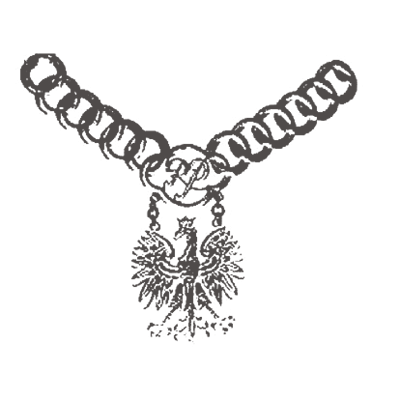Filing fee on fraudulent-transfer claims slashed by up to PLN 199,000
The July 2023 amendment to Poland’s civil procedure rules made a big change in the filing fee on a fraudulent-transfer claim against a third party. Now, if the amount in dispute at the first instance or on appeal exceeds PLN 20,000, the fee will be capped at PLN 1,000. There is one condition: the creditor must hold specific legal proof of its claim against the debtor. Previously, the fee on such a claim could run as high as PLN 200,000.

“Permanent economic relations” between the parties to a transaction detrimental to a creditor
A fraudulent transfer claim against a third party protects participants in commerce and helps combat reprehensible actions by debtors aimed at avoiding payment of their debts. Under a fraudulent transfer claim against a third party, a creditor affected by the debtor’s fraudulent behaviour may enforce a claim against assets that the debtor transferred to a third party.

“Close relationship” of the parties to a transaction detrimental to creditors
Through a fraudulent transfer claim against a third party, a creditor impacted by the debtor’s dishonest behaviour can enforce its rights against property transferred by the debtor to a third party. This allows the creditor to challenge the effectiveness of a transaction carried out with a third party to the creditor’s detriment.

When a debtor starts litigation to avoid paying a debt—continued
It is worthwhile for creditors to take part in litigation even if the outcome could go against them. This way, they can help prevent the court from issuing rulings sought by colluding debtors and their allies.

When a debtor starts litigation to avoid paying a debt
Dishonest debtors are increasingly daring to use court proceedings to fictitiously dispose of funds to pay their debts. They believe that if they obtain a final judgment that orders them, for example, to pay an amount to a third party, the creditor will not be able to contest the payment. But is the creditor completely defenceless? With this article, we are kicking off a series on what to pay attention to and how to react when a debtor initiates court proceedings that may render the debtor insolvent.

A debtor disposes of assets before the debt falls due: Can the creditor pursue a fraudulent transfer claim against a third party?
An investor and a contractor sign a construction contract. Before the contractor begins work, the investor disposes of valuable assets, from which the contractor could satisfy its claim for the fee, but the fee will not be due until completion of the work. In that situation, can the contractor take advantage of the broad protection of a fraudulent transfer claim against a third party?

Fraudulent transfer claim against a third party: A basic instrument for protecting creditors against debtors’ insolvency
The deepening crisis of debtor honesty means that today, more than ever, creditors face the risk that debtors will not only fail to pay their debts voluntarily, but will hinder enforcement by transferring assets to third parties. In such situations, a fraudulent transfer claim against the third party (sometimes called a “Pauline action”), known and applied in legal systems of many countries around the world, comes to the creditor’s rescue.

Which court should hear a fraudulent transfer case against a third party or a case seeking to protect real performance of a contract?
To challenge a transaction by a debtor with a third party injurious to a creditor (fraudulent transfer action) or a contract by the debtor with a third party (action under Civil Code Art. 59), it is essential to file the properly drafted statement of claim with the court with proper venue geographically and for the subject matter. How to determine which court is proper to hear the case?

A chain of transactions designed to harm a creditor: Impossible to unwind?
Often, both debtors and creditors believe that if a debtor has initiated a whole chain of transactions to evade paying debts, the case cannot be “unwound” and the creditor is defenceless. But in reality, in such situations dishonest debtors (and their allies) cannot rest easy. Both the legal provisions and the court practice give the creditor a chance to successfully challenge even a whole chain of fraudulent transactions.

A fraudulent transfer claim does not always enjoy priority of satisfaction
In a recent resolution, the Supreme Court of Poland addressed the legal situation of a creditor bringing a fraudulent transfer claim against a third party, compared to other creditors of the third party.

Pursuing claims for the tort of selective payment of creditors as an alternative method of securing the interests of creditors overlooked by the debtor
In its judgment of 10 February 2021 (case no. I CSKP 33/21), the Supreme Court of Poland considered a cassation appeal by a claimant seeking to prove that it was wronged as a creditor in a fraudulent transfer claim against a third party (governed by Art. 527 and following of the Civil Code). The Supreme Court raised important issues in this debatable decision from the point of view of the safety of participants in commerce, including creditors. Among other things, the court pointed out that the assessment of whether a creditor was harmed within the meaning of Art. 527 §2 is affected by whether the consideration obtained by the debtor was used to satisfy other creditors.

How to properly formulate a fraudulent transfer claim against a third party: Conclusions from Supreme Court of Poland rulings
A claim to set aside fraudulent transfers to a third party (Art. 527 et seq. of the Civil Code) must precisely identify both the parties and the subject matter in the demand for relief set forth in the statement of claim. It is a mistake to assume that the trial court will seek out the missing elements in the justification for the statement of claim.
